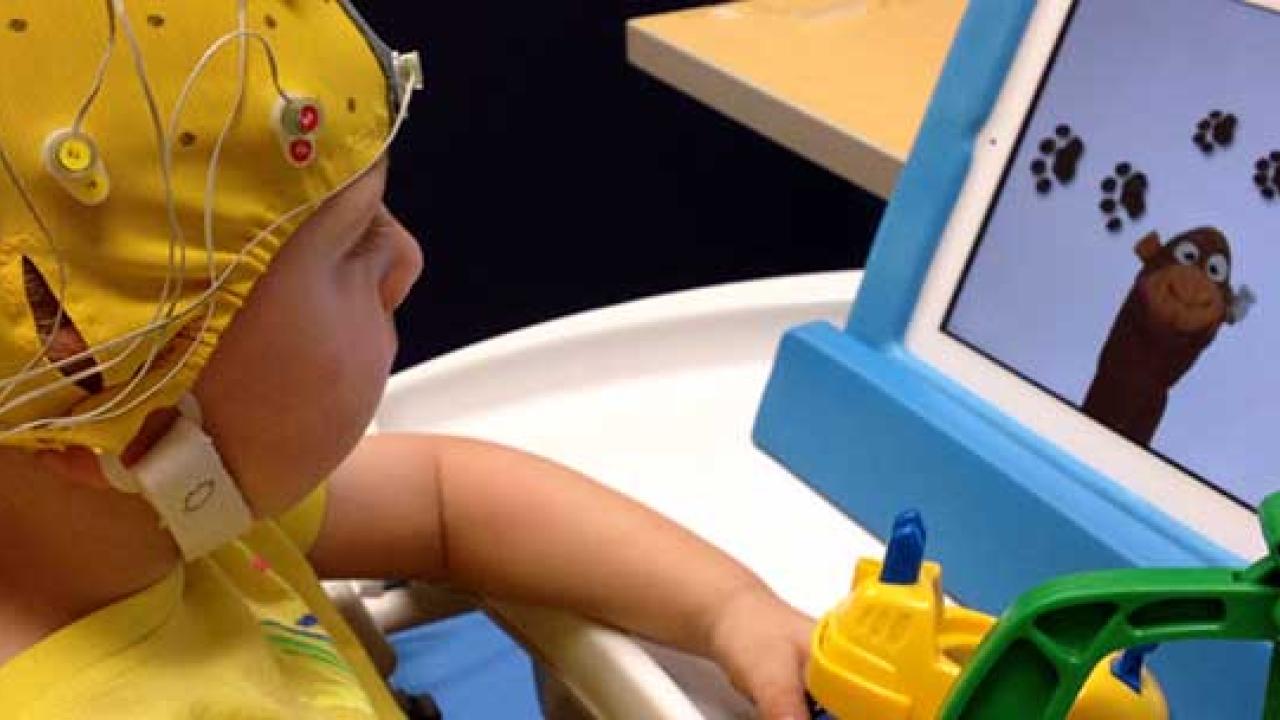
UC Davis Postdoc Awarded NARSAD Young Investigator Grant
This article originally appeared on the UC Davis Center for Mind and Brain website.
Postdoctoral scientist Veronika Vilgis has been awarded a prestigious NARSAD Young Investigator Grant from the Brain & Behavior Research Foundation to research links between late childhood stress, brain development and depression in teen girls.
The $35,000, one-year grant begins in January 2018.

Vilgis is a member of Professor Amanda Guyer’s Human Experiences and Affective Development Lab at UC Davis’ Center for Mind and Brain. She joined the lab in in January 2016 after completing her Ph.D. at the University of Melbourne, Australia.
For her project, Vilgis will draw on data from a study that followed 232 girls from age 9 through age 20 to study the body's stress response as measured by cortisol.
“We know that cortisol can affect the structure and function of the hippocampus,” a region in the brain associated with memory processing and emotional responses, she said. “We also know that patients with depression sometimes show changes in the hippocampus.”
Vilgis said a better understanding of the biological mechanisms involved could lead to new interventions during critical periods of development to reduce the burden of depression.
The NARSAD Young Investigator Grant provides support for promising young scientists conducting neurobiological research. NARSAD is an acronym for National Alliance for Research on Schizophrenia and Depression, the former name of the Brain & Behavior Research Foundation. The foundation is the top non-governmental funder of research grants for the early detection, treatment, prevention and cure of mental illness. Grant recipients are recommended by its scientific council, composed of 168 leading scientists.
About the Center for Mind and Brain
The Center for Mind and Brain is a UC Davis research initiative bringing together world-class scientists with the latest technology to learn how the human mind works and to teach the techniques and tools to the next generation of researchers. The Center for Mind and Brain (CMB) is devoted to supporting the collaborative work of world-class scientists from a broad spectrum of disciplines encompassing divergent social, biological, computational and medical perspectives.
Scientists in the CMB study language, memory, attention, cognitive control, emotion, multisensory integration, music cognition, social cognition and visual cognition from cognitive neuroscience and developmental perspectives in healthy infants, children and adults, and in special patient populations. We also are leaders in the emerging field of translational cognitive neuroscience, which endeavors to translate basic science findings about the operation of healthy minds and brains into clinical research on mind-brain disorders such as autism, schizophrenia, attention deficit disorder and Alzheimer's disease.
Learn more by visiting the UC Davis Center for Mind and Brain website.
